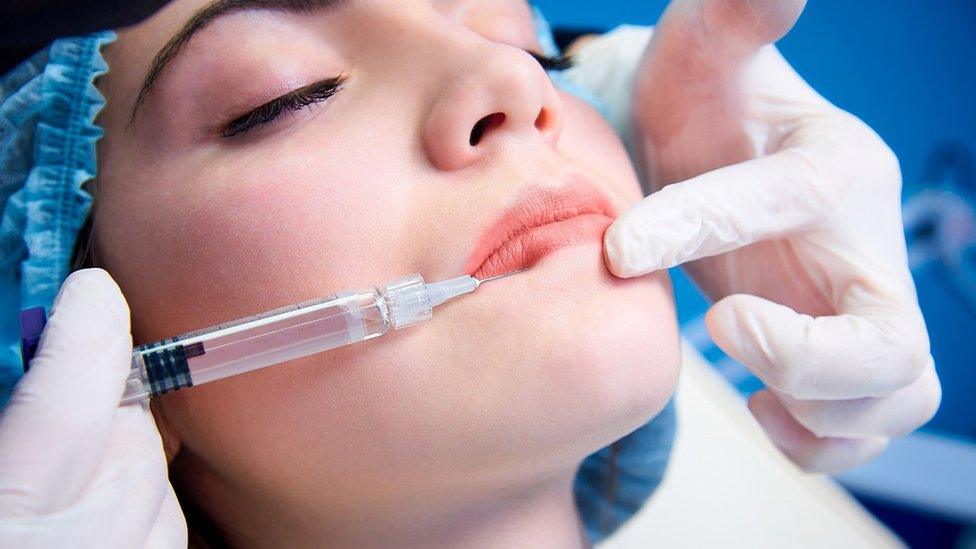Ban Botox-style injections and lip fillers for under-18s in Wales, campaigners say
- Published
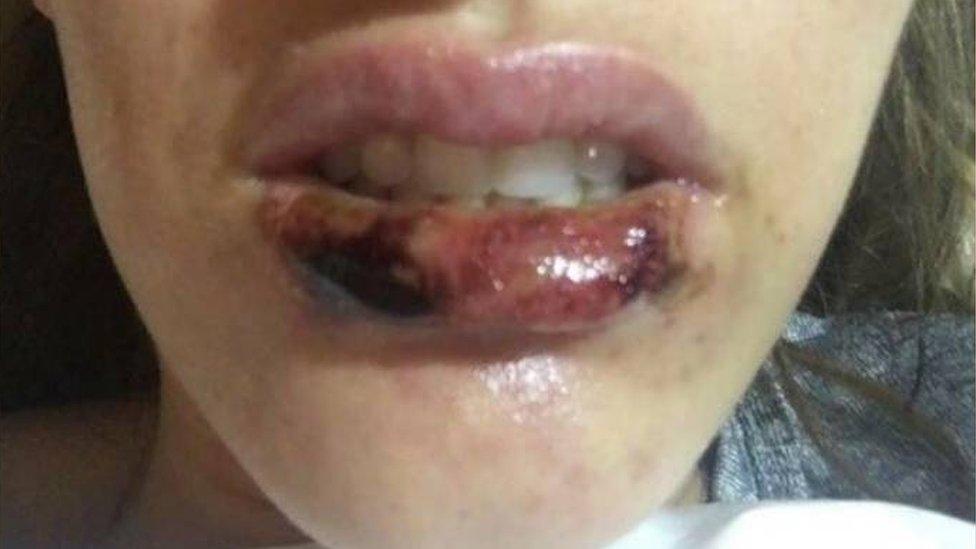
Complications can include lumps and tissue damage or death
Botox-style treatment and lip fillers for cosmetic reasons should be banned for under-18s in Wales, campaigners say.
A new law, in force in England from Friday, follows efforts to regulate the non-surgical beauty industry.
However the Welsh government has yet to update legislation, prompting fears young people may cross the border for treatment.
Campaigner Ashton Collins said ministers in Cardiff must act fast.
She is a director of Save Face, a Cardiff-based register of accredited practitioners across the UK who provide non-surgical cosmetic treatments.
Before the new legislation came into place in England, under-18s were able to get botulinum toxin injections - known as Botox - and dermal fillers with no checks on their age.
Save Face said the new law was a "monumental step forward" after years of campaigning, but it was unfortunate it only applied to England.
"The Welsh government must act fast in implementing this rule because it is a huge problem," Ms Collins told BBC Radio Wales.
"Some people desperately want these treatments, particularly young girls, but there's no reason for anybody under the age of 18 to be getting them for cosmetic reasons.
"Wales and Scotland can't act quick enough because there's now the risk that people could travel across the border to access this treatment.
"But we hope by raising awareness that practitioners will act ethically and accountably by screening people before they treat them."
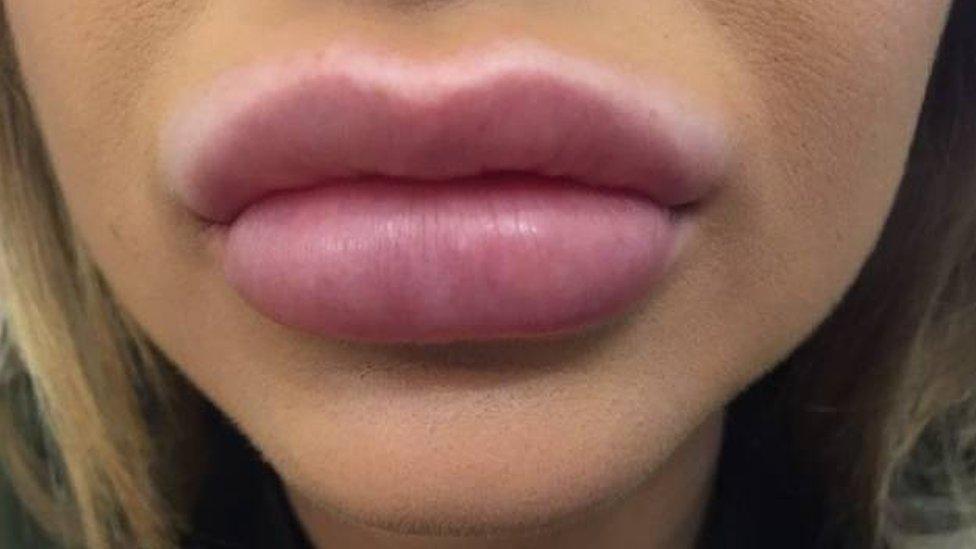
Campaigners criticise reality TV stars who are paid to promote treatments
The Welsh government said it was looking into the regulatory gap in Wales in relation to these types of procedures.
Campaigners have pointed the finger at reality TV programmes and social media influencers for encouraging young people, particularly girls, to seek treatments.
Former Love Island contestant Sharon Gaffka has said she hated knowing she may have influenced young people to have cosmetic procedures.
"Lip fillers are the most popular because of programmes like Love Island and social media influencers," said Ms Collins.
"People need to be a lot more accountable for what they put online.
"There are many influencers and reality TV stars who are sponsored to actually promote having these treatments. But they never explain how dangerous they can be in unsafe hands.
"It's a look that these young girls desperately want and unfortunately there are a lot of unscrupulous people who are willing to inject people under the age of 18, which is outrageous."

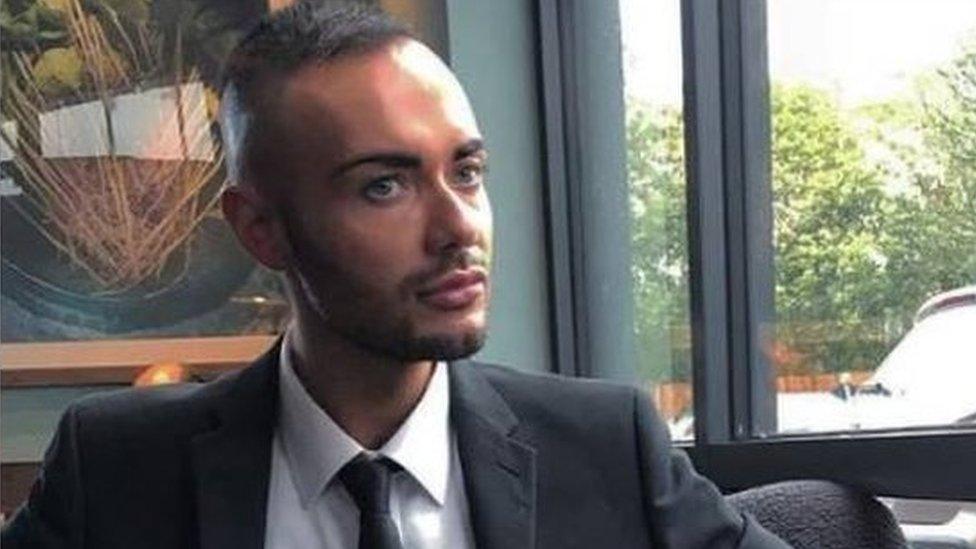
Botox-user Iwan Steffan would support raising the minimum age to 21
Iwan Steffan uses cosmetic treatments such as Botox injections and facial fillers to look and feel good.
The 31-year-old from Bangor began having cosmetic treatments when he was 18 but would support raising the age further.
"Every single clinic I have been to had a strict 18-plus policy yet I still think this is a very young age to start unnecessary treatments," said Mr Steffan, who managed a salon in Liverpool before the coronavirus pandemic.
"The good thing is, Botox and fillers are not permanent. If you start getting Botox and fillers when you're 18 it's not going to change your life dramatically, unless you want it to.
"I would support the law if in the future they changed the legal age to 21, because you're still not fully mature or fully developed at 18.
"I am a completely different person now to who I was when I was 18 - and I don't think you need to start worrying about Botox and fillers until you're at least 21."

Why is it a problem?
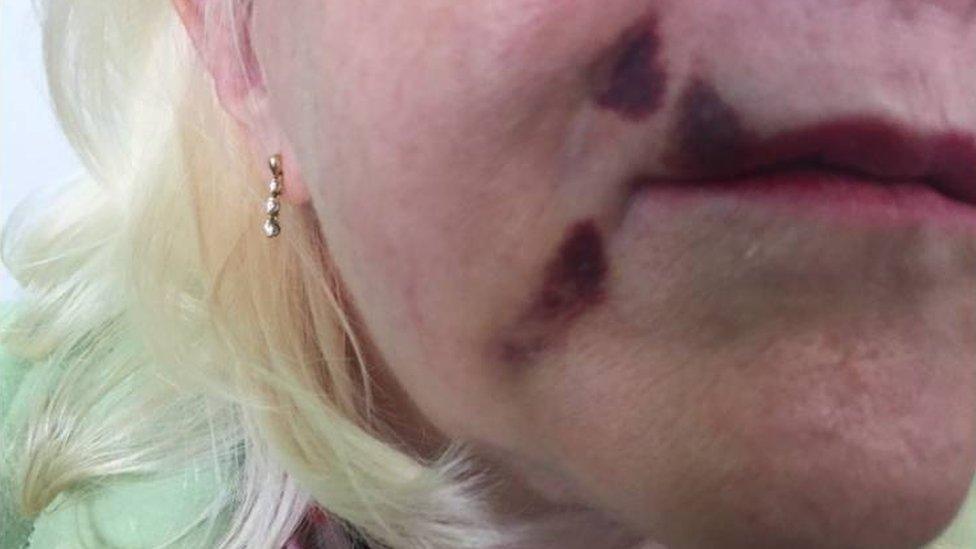
Ashton Collins says people can be left isolated when treatment goes wrong
There remains no law in the UK requiring practitioners to have formal qualifications or training for this type of treatment.
Complications can include nodules or lumps, permanent tissue damage, tissue death or necrosis, and even blindness.
"When things go wrong, young girls are not expecting it and are often left in isolation to try and find help elsewhere, which can be a terrifying situation," said Ms Collins.
Similar concerns were seen in a recent BBC Three documentary which revealed complicated aesthetic procedures being taught over the internet or on unsafe one-day courses.
- Published1 October 2021
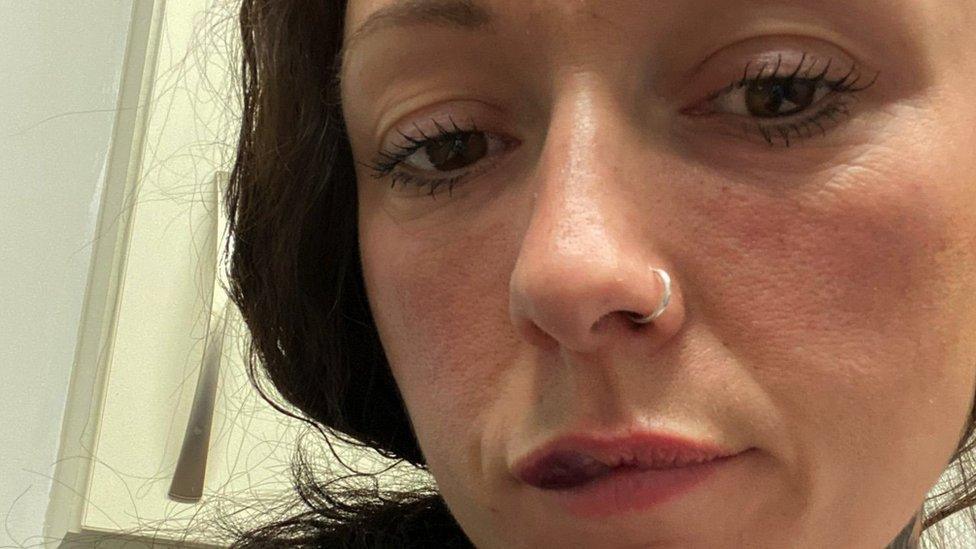
- Published1 October 2021
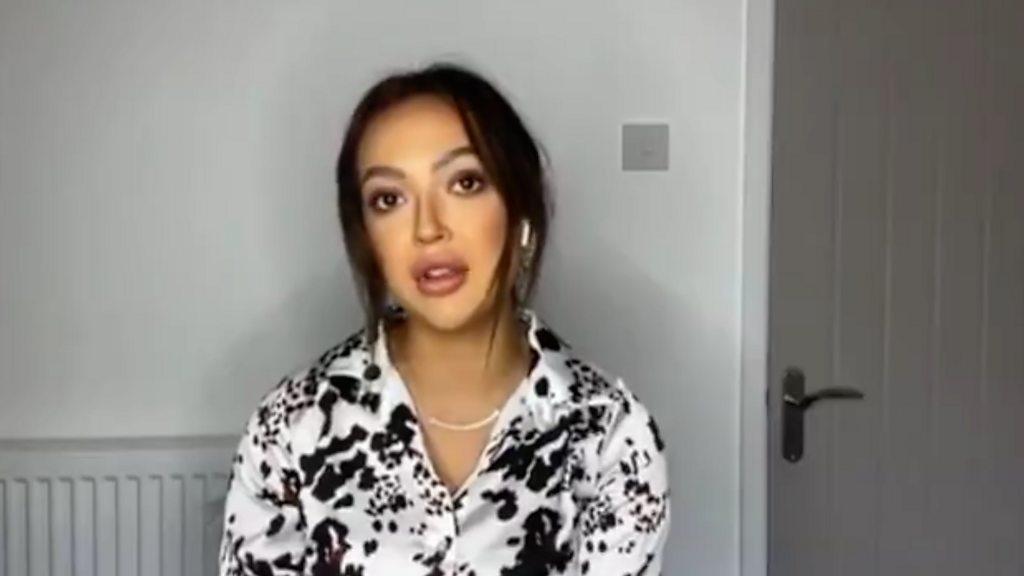
- Published20 January 2020
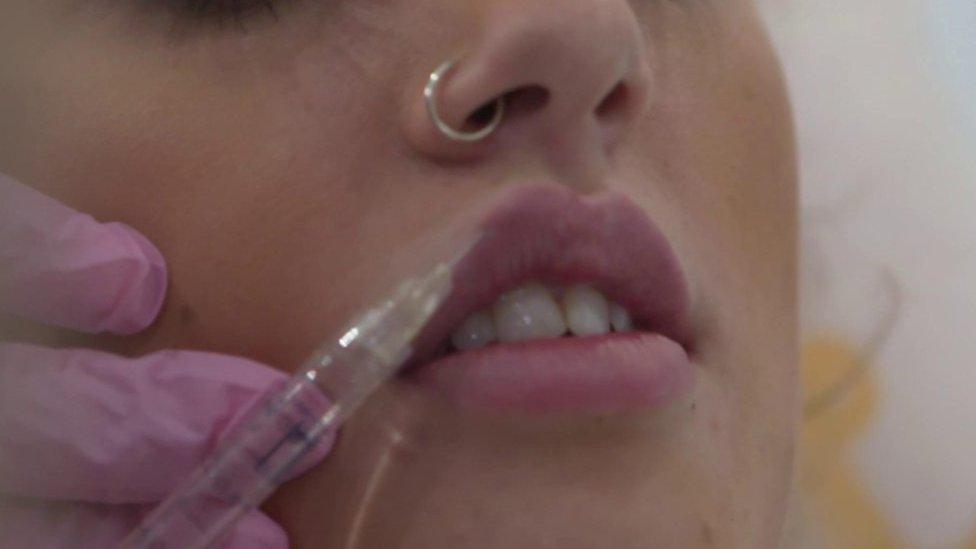
- Published17 January 2020
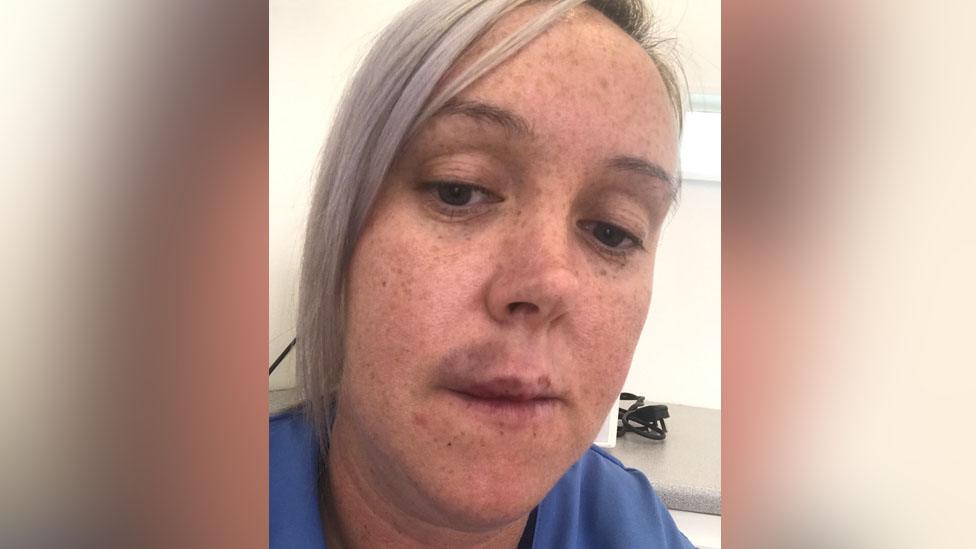
- Published18 December 2019
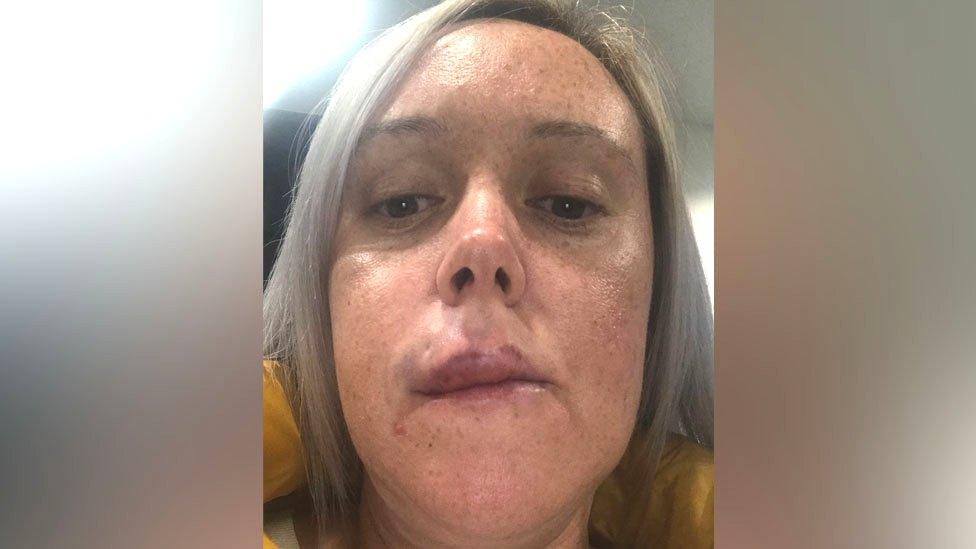
- Published27 February 2019
